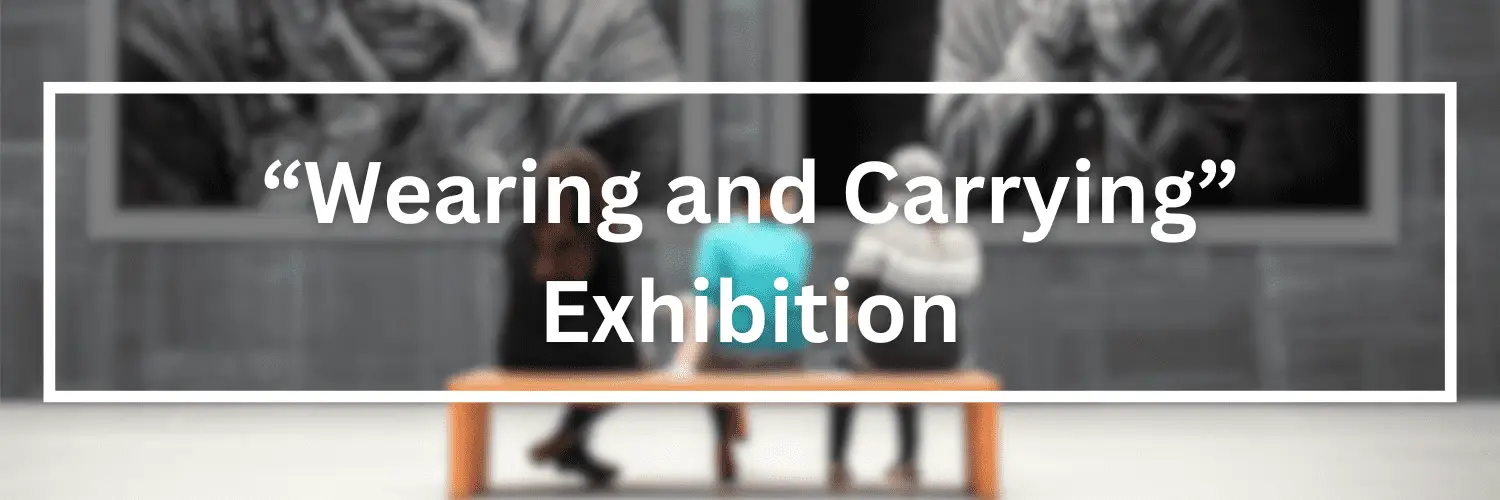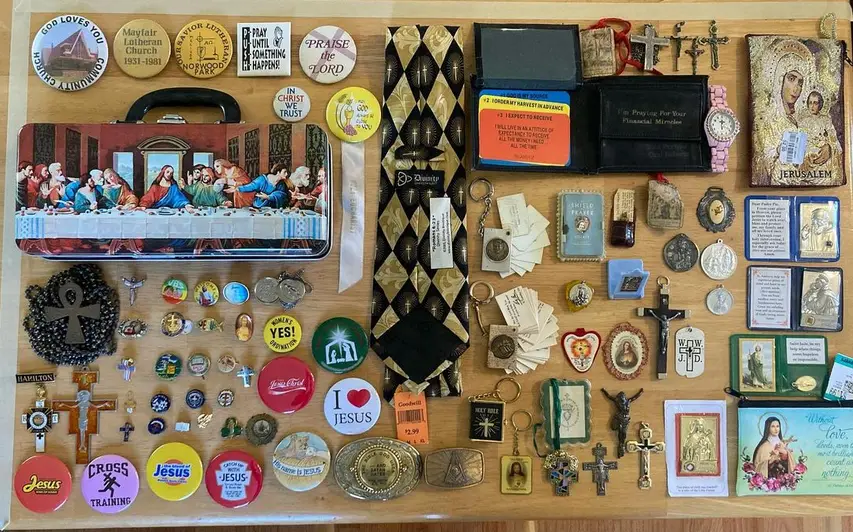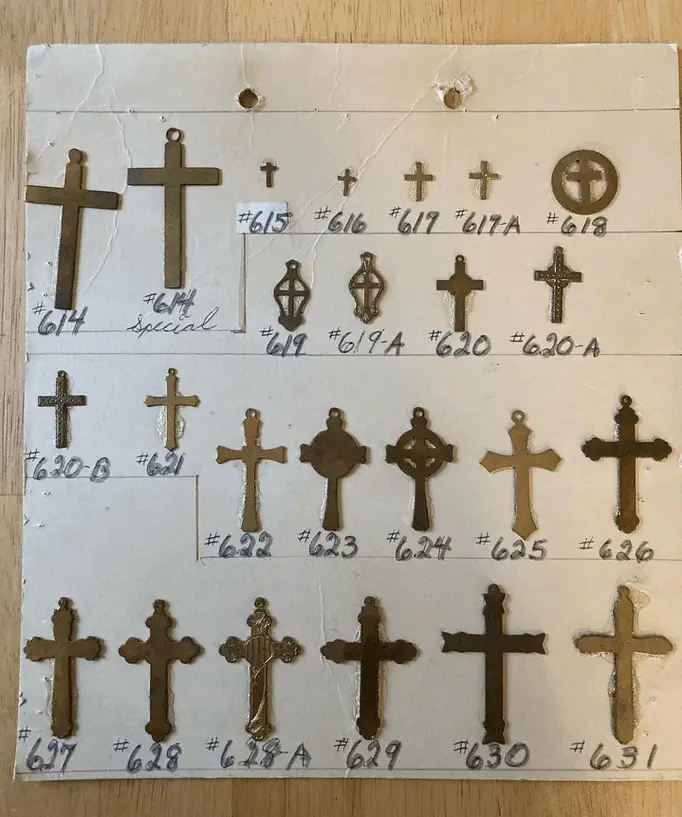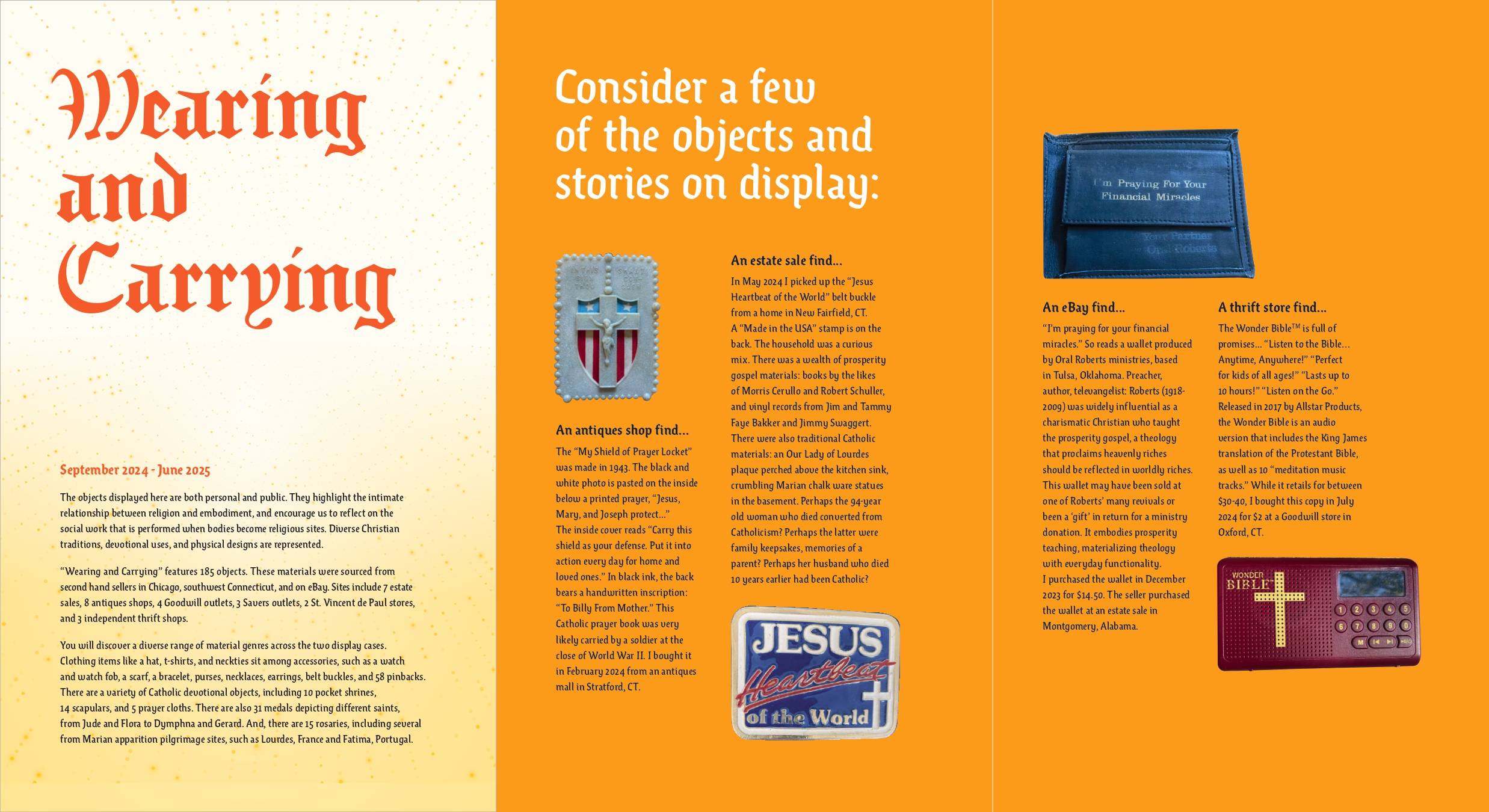"Wearing and Carrying" Exhibition
The Power and Significance of Religious Symbols
This research exhibit showcases materials that have been divested by previous owners; cast off as sacred waste, vestiges of lived religion.
The objects displayed are both personal and public, displaying over 160 religious objects. Some objects are Catholic, others Protestant, and others less decided. – See brochure

The “Wearing and Carrying” exhibition
Secondhand Sacred is partnering with the Martin Marty Center (University of Chicago) to curate this exhibition
When
BEGINS on September 25, 2024 and ENDS on December 15, 2024
Where ➤
Martin Marty Center at the University of Chicago campus.

Transforming Bodies into Religious Sites
Visitors will discover a diverse range of material genres across two display cases, from pins and buttons to rosaries, pocket shrines, belt buckles and neck ties. The objects displayed are both personal and public, and have been sourced primarily from thrift stores, antique shops, and estate sales in western Connecticut, but also Evanston, Illinois and eBay.
They highlight the intimate relationship between religion and embodiment, and encourage us to reflect on the social work that is performed when bodies become religious sites.
The significance of sacred objects in religious practices
Sacred objects are central to religious practices worldwide. Their differing roles in spirituality could symbolize:
- A connection with the Divine
- Offering personal comfort, protection, or guidance to an individual
- Representing core religious beliefs
- Fostering community identity
- Helping believers focus their spiritual connection
As an example, the crucifix, a cross bearing an image of Christ, did not become a recognized symbol in Christian worship until sometime in the 6th century AD., many centuries after the crucifixion of Jesus on a large wooden cross. This iconic symbol is recognized worldwide now and is a common symbol of Christianity.
Famously used by Constantine I on his military standard in 312 AD was one of the oldest Christograms, the Chi-Rho. The Chi-Rho, a combination of letters used as a religious symbol to represent the name of Jesus Christ within the Christian/Catholic Church, consists of the superimposed Greek letters chi (Χ) and rho (Ρ). It is now one of the more recognizable faith symbols used by Jesus followers today.


